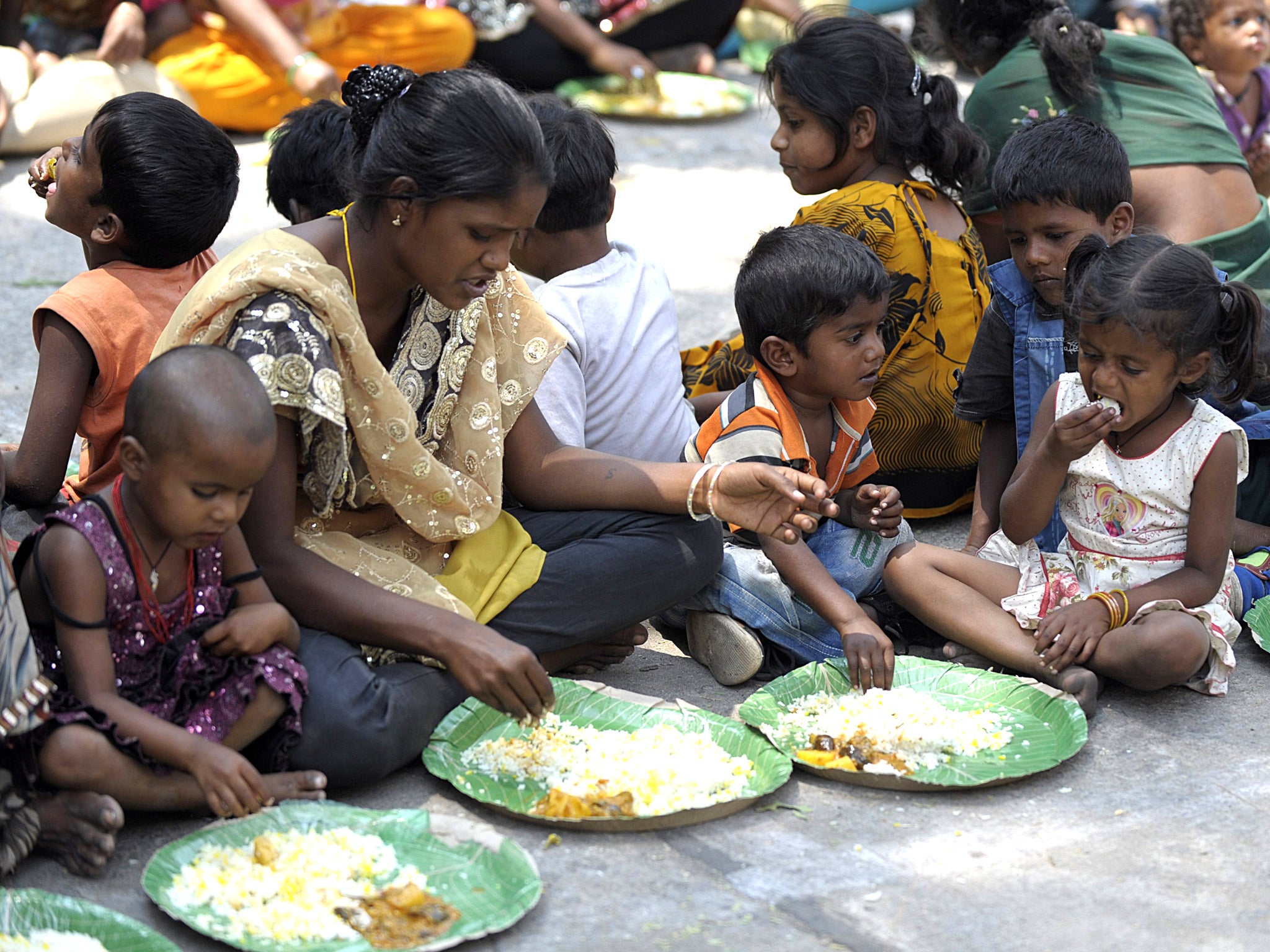Malnutrition costing the world trillions a year, says UN report

Malnutrition now costs the world $3.5 trillion (£2.3 trn) – or $500 for every person– in healthcare and lost productivity, the United Nations has warned.
In a hard-hitting report, the UN said the levels of malnutrition – which includes being overweight and obese as well as under-nourished – were "unacceptably high" and called for a concerted global campaign to cut food-waste.
Currently, a third of all food produced for human consumption is wasted.
"Malnutrition in all its forms imposes unacceptably-high costs on society in human and economic terms. We must strive for nothing less than the eradication of hunger and malnutrition," said Graziano da Silva, director general of the UN's Food and Agricultural Organisation (FAO).
The cost of under-nutrition and micronutrient deficiencies – for example of vitamin A, which can cause blindness – is estimated at 2 to 3 per cent of global economic output, or about $1.4 to $2.1 trillion a year, the FAO said.
Furthermore, the costs of being overweight or obese, such as the increased risk of a heart attack, although harder to calculate, have been estimated to be about $1.4trn a year. This suggests that the total cost of malnutrition is as much as $3.5trn (£2.3trn) a year.
The UN report calls for investment, research and new policies to dramatically improve agricultural yields of staples such as maize, rich and wheat as well as nutrient-rich foods such as peas, beans, meat, milk, vegetables and fruit.
It comes a day after MPs said the British people should eat less meat and retailers and food producers should be penalised for wasting food, warning that the UK is "never more than a few days away" from a food shortage.
Meanwhile, a separate UN report today calls on ministers to help tackle malnutrition in children after finding that poor diets are causing disability in tens of millions of children worldwide.
Join our commenting forum
Join thought-provoking conversations, follow other Independent readers and see their replies
Comments
Bookmark popover
Removed from bookmarks